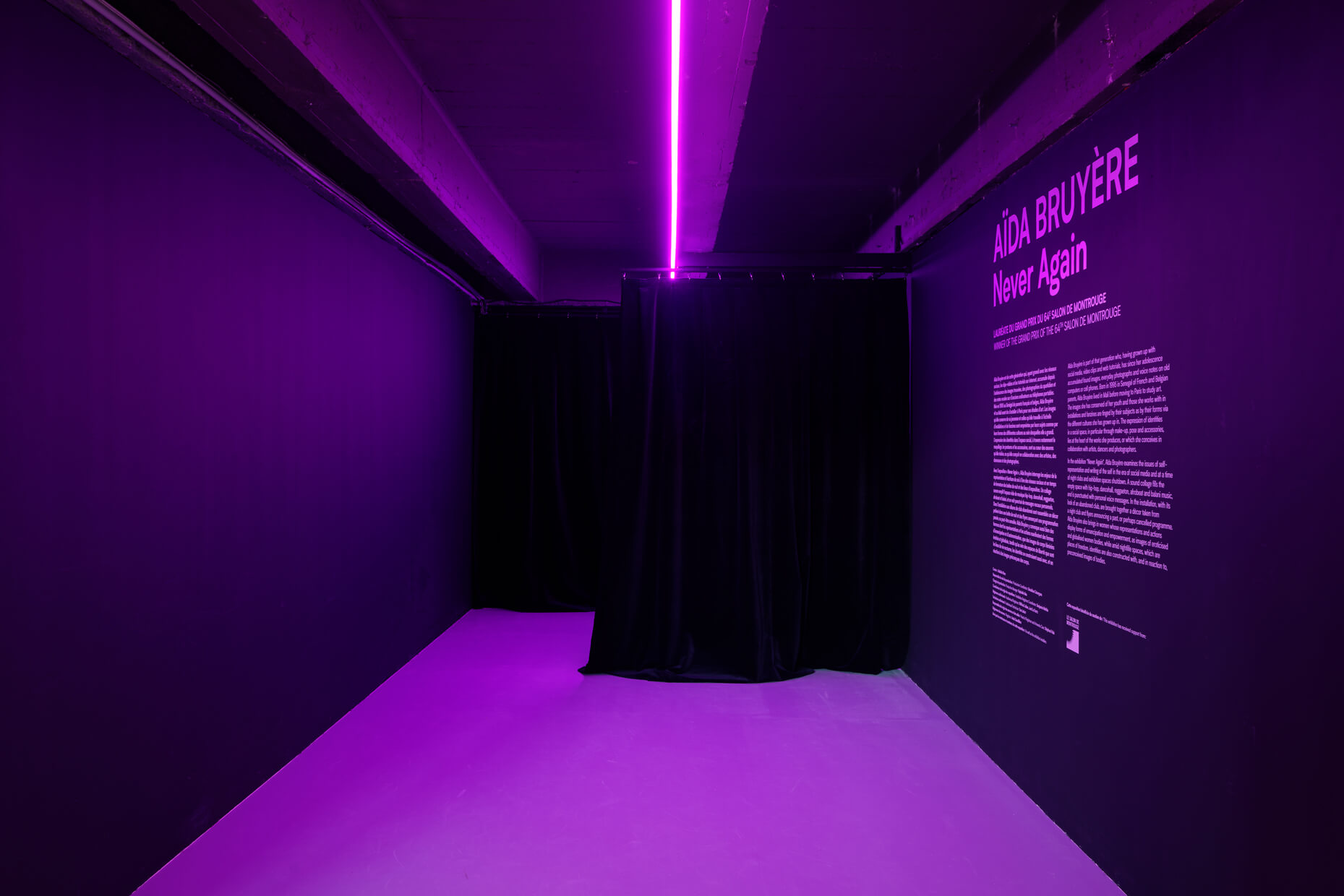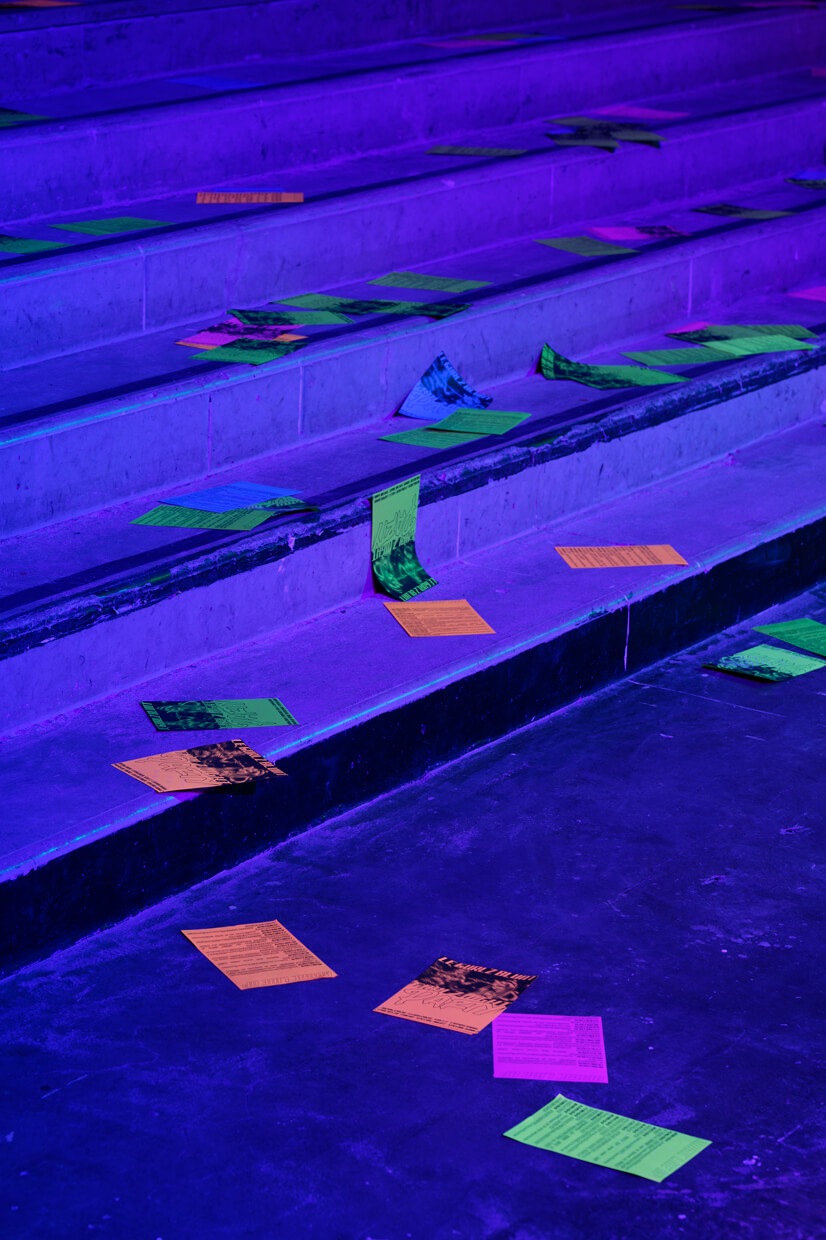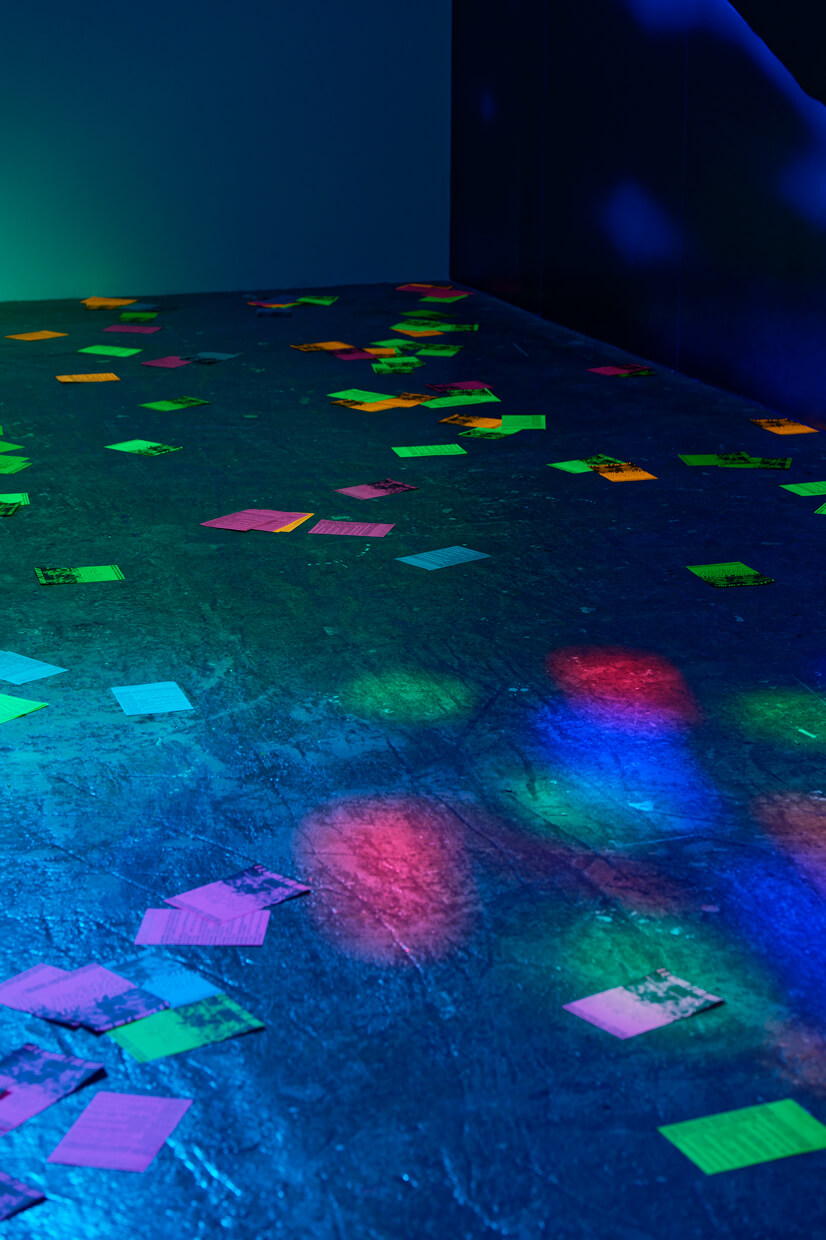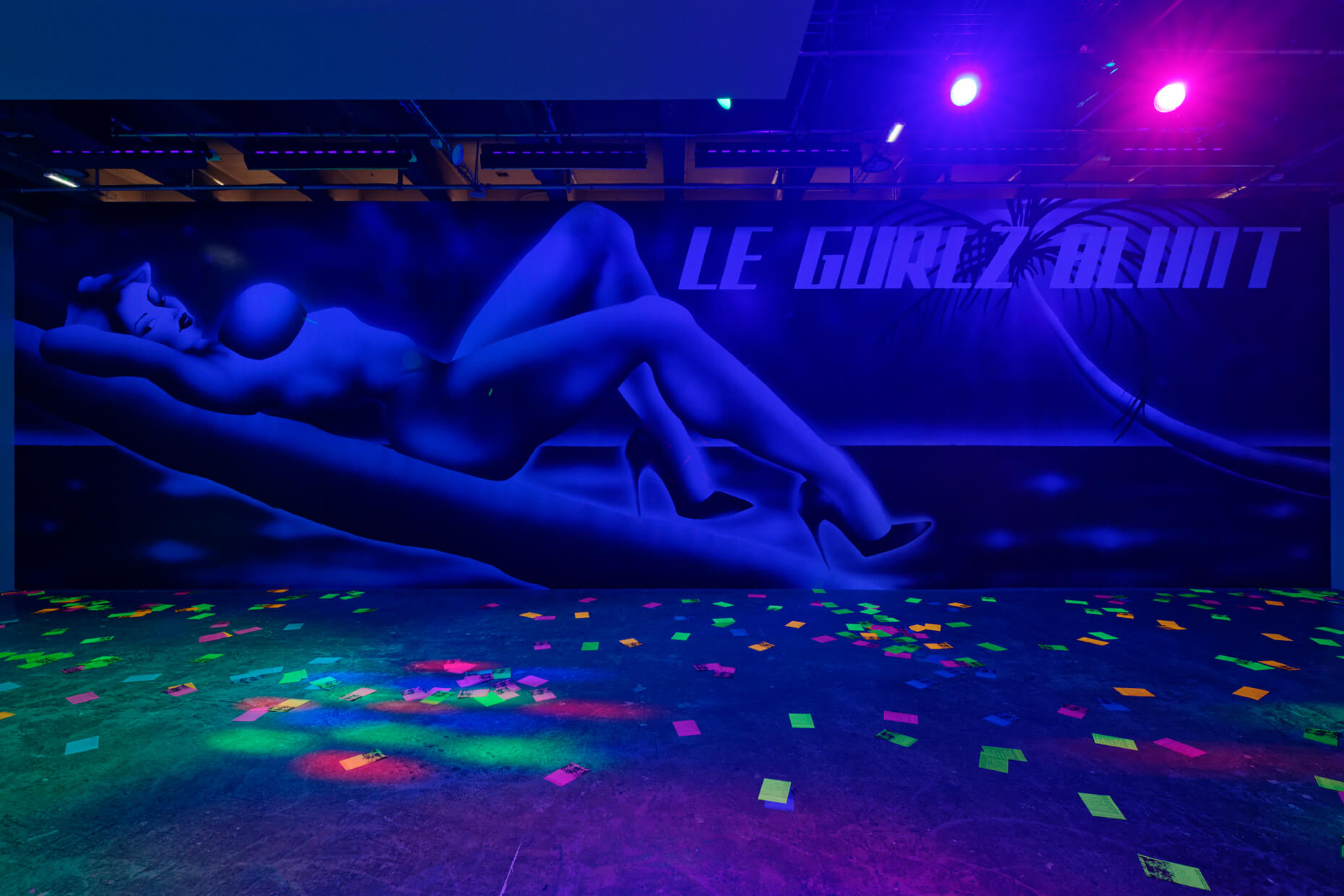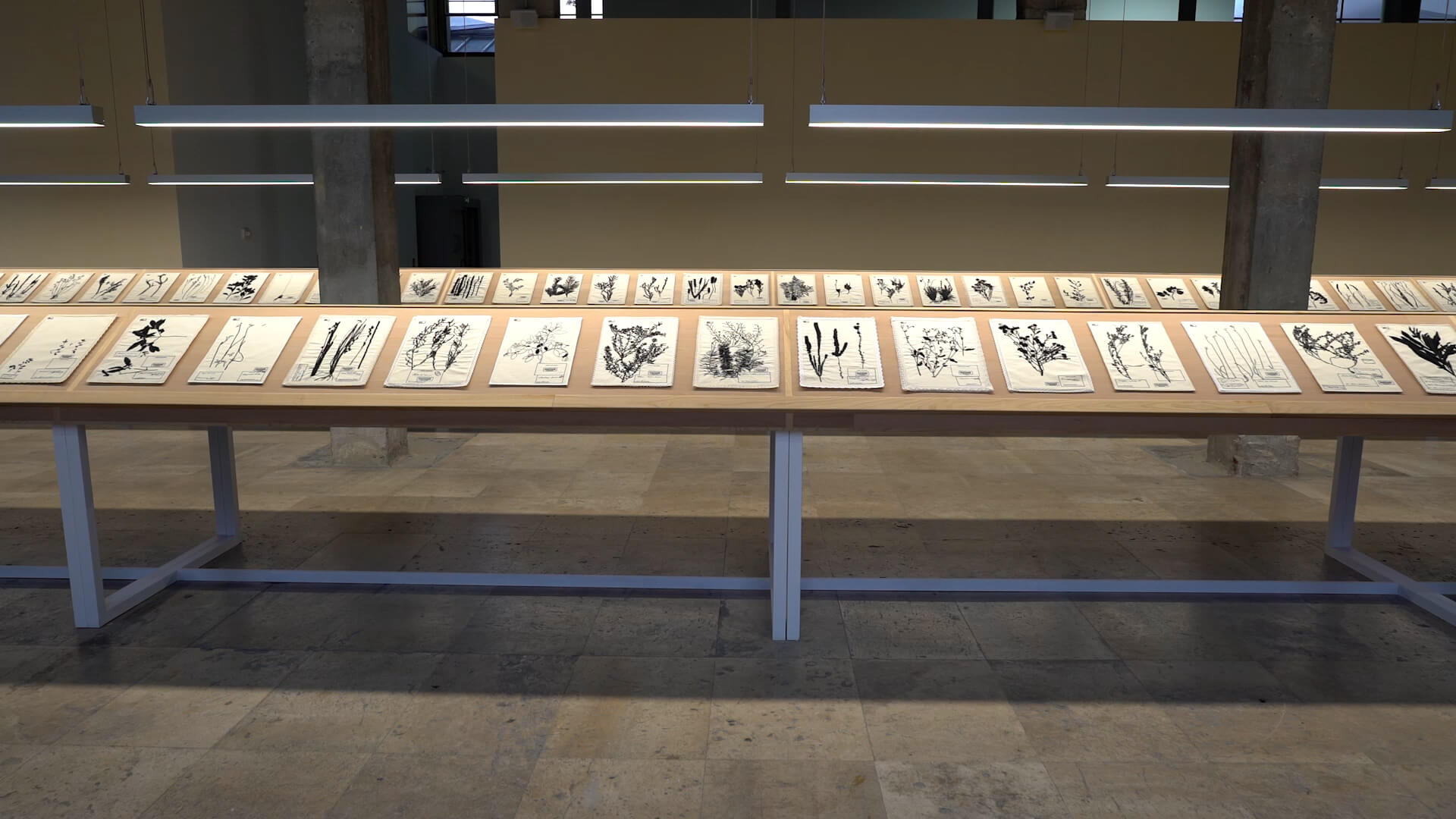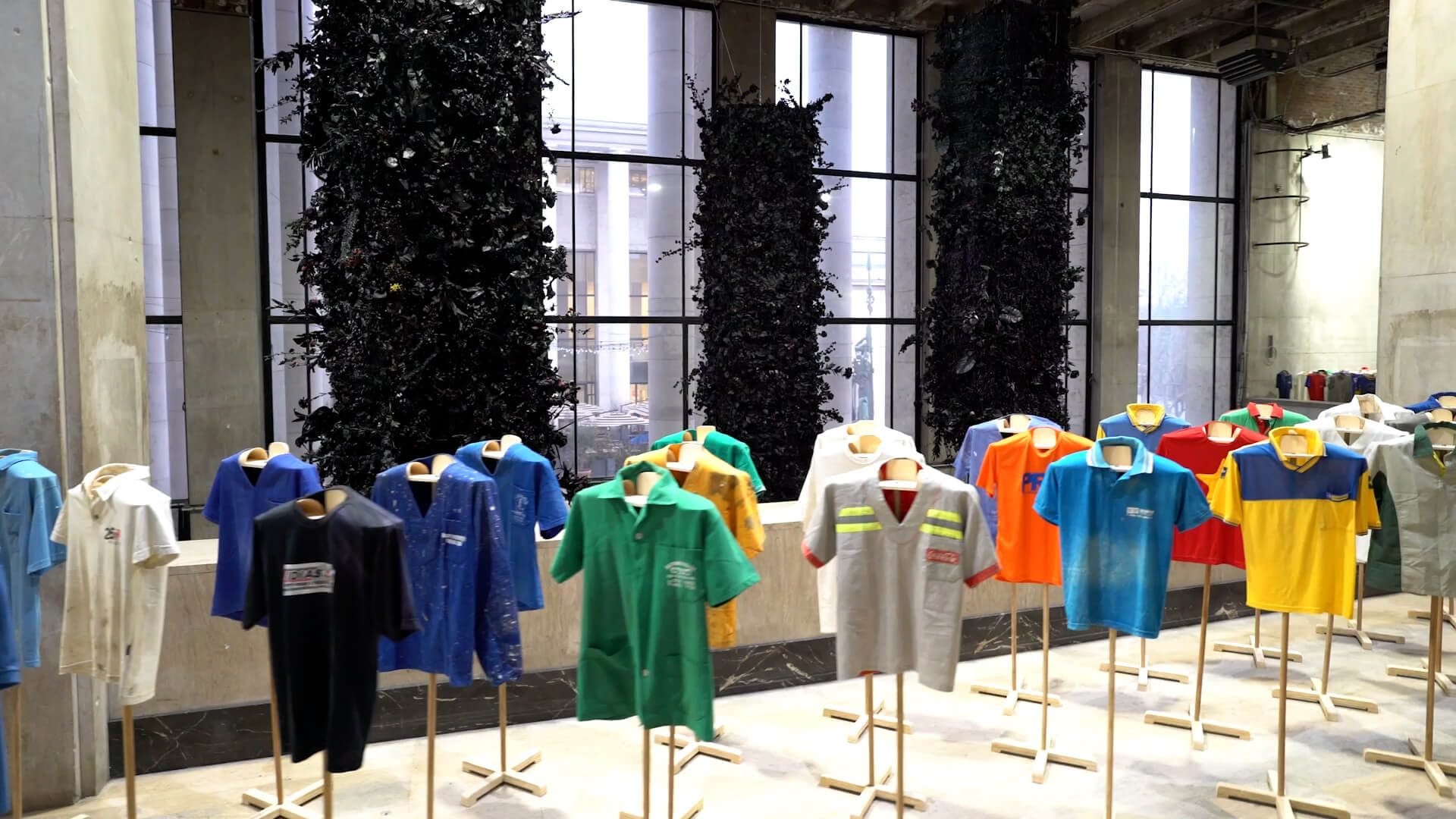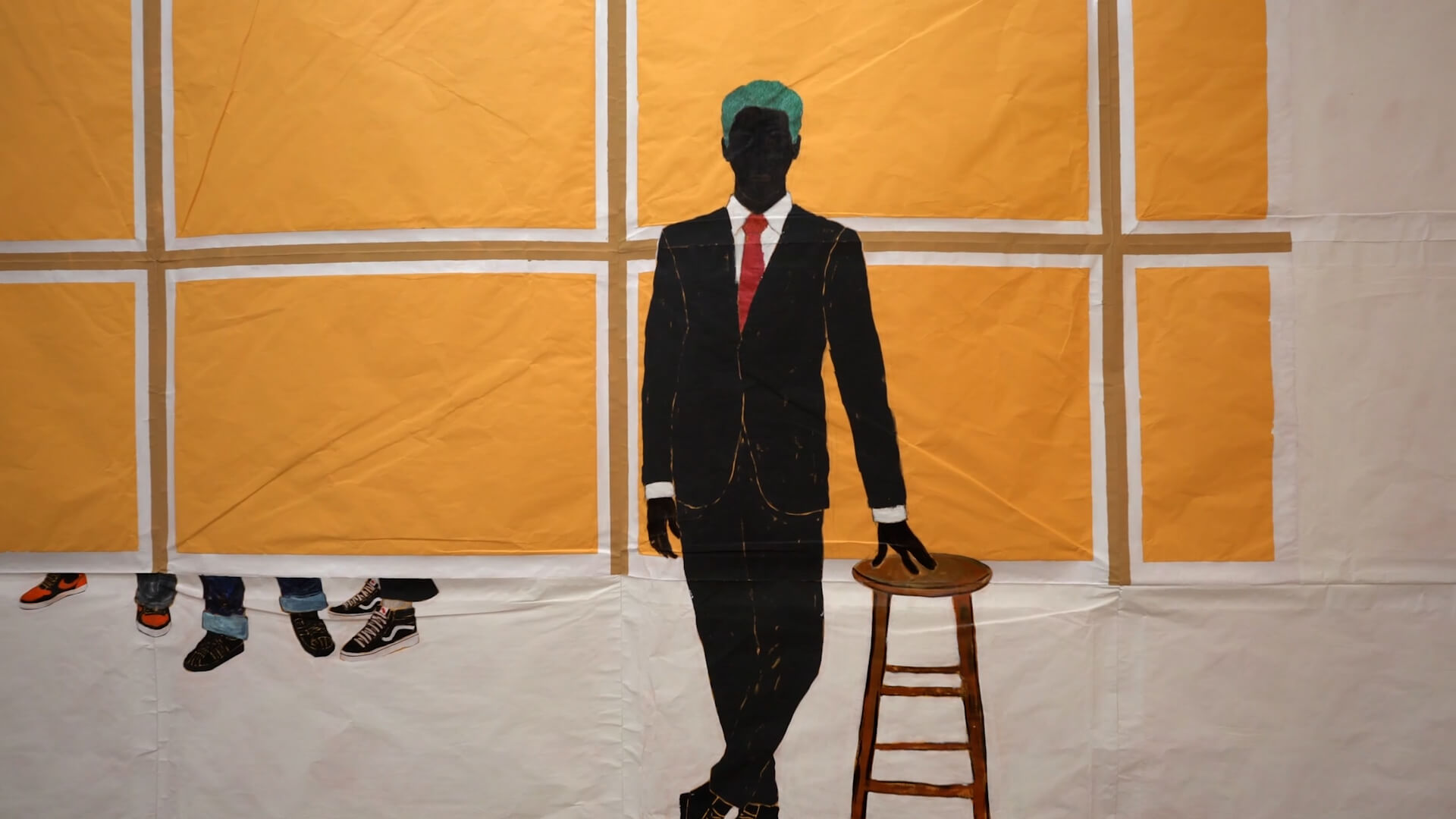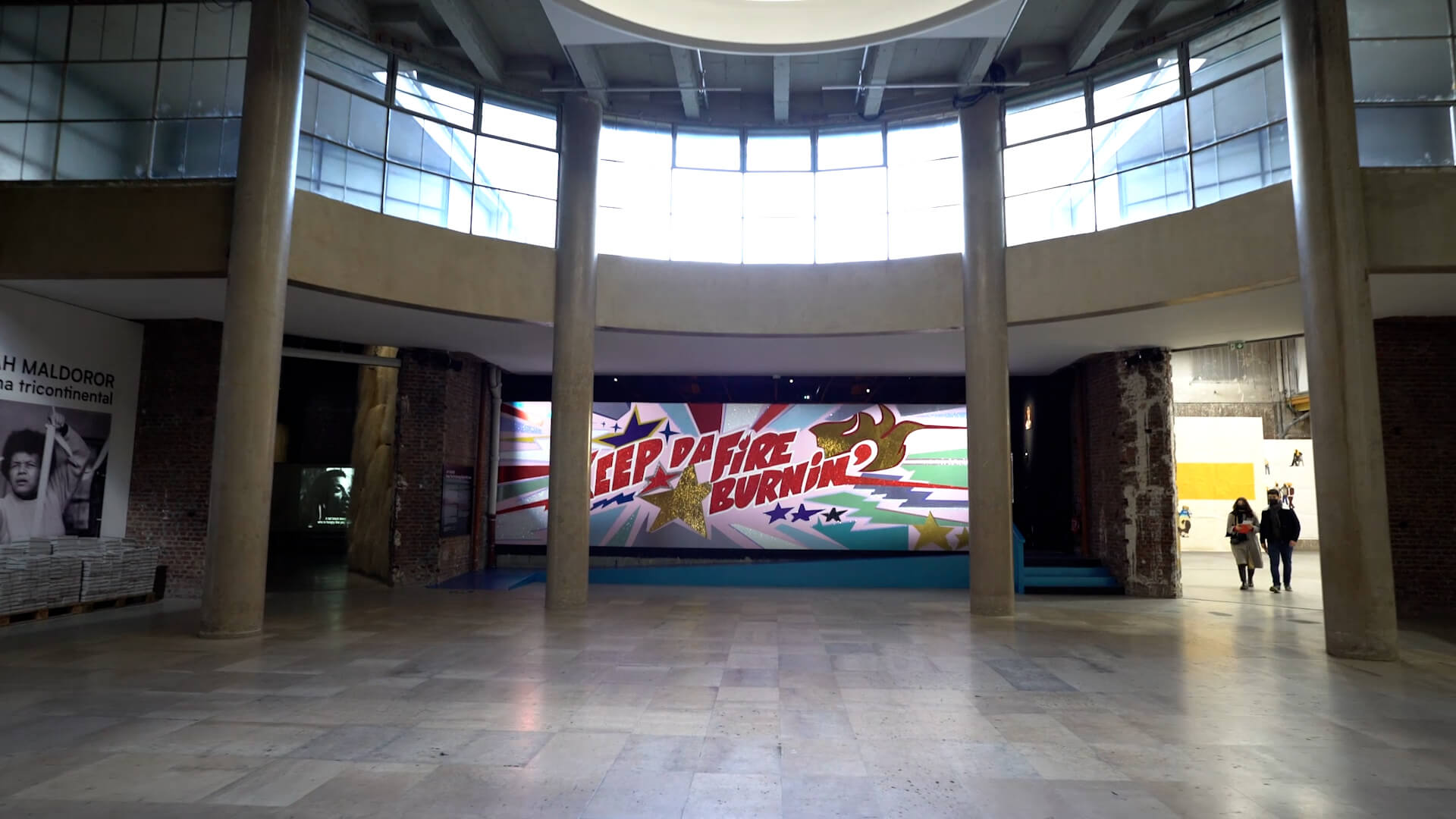SEARCH THE ENTIRE SITE
Video of the exhibition “Never Again”
Aïda Bruyère
Never AgainThrough collaborative installations and publications, Aïda Bruyère explores the expression of bodies within social space and the construction of identities in urban countercultures. For her new installation, which looks like a closed and abandoned nightclub, she names several women whose representations and actions manifest forms of emancipation and empowerment.
Young French artist raised in Mali, Aïda Bruyère bases her practice on images. Coming from various sources, transformed, multiplied and presented on walls or in fanzines, images are the artist’s favoured tool to address issues linked to the body and its constructions within the social space. From her first series of photographs– a fictional story on the eccentric life of a wealthy Malian– to her recent research on twerking and dancehall battles– a movement that emerged in Jamaica in the late 1970s– she explores the mechanisms of identity affirmation through urban countercultures. Pose, accessories and venues for parties and competitions have interested the artist since her adolescence, notably for their emancipatory power. Evolving on the fringes of dominant culture, these gestures and representations are built with and in reaction to preconceived, colonialised, sexualised and political images of the body.
Aïda Bruyère continues her researchs at the Palais de Tokyo with an installation inspired by a nightclub. Yet only few images and objects remain of this social space organised around remain bodies proximity, music and drunkenness. It was the economic crisis in Mali that led the artist to take an interest in the abandonment of places of nocturnal sociability for the exhibition. Their closure on an international scale since 2020 and the forced physical distancing shed another light to her project today.
The profusion of images characteristic of Aïda Bruyère’s visual and editorial work gives way to the experience of a seemingly empty space, as it might be after a party or during the shutdown time. Here, only few images of eroticized and schematized women bodies that serve as club decor and flyer illustrations appear. Nightlife is also when expressions of identities respond to, contradict, and build upon one another. Aïda Bruyère put the viewer at a distance of this place of sociability as she displays a past or cancelled program, gathering women who are DJs, dancers, activists, feminists and instagrammers. Escaping the visible sphere, other women’s figures are named in the exhibition and enter in resonance with this “magic line up,” reporting multiple forms of creolization and empowerment practices.
From November 26, 2021 to February 20, 2022
Curator : Adélaïde Blanc
